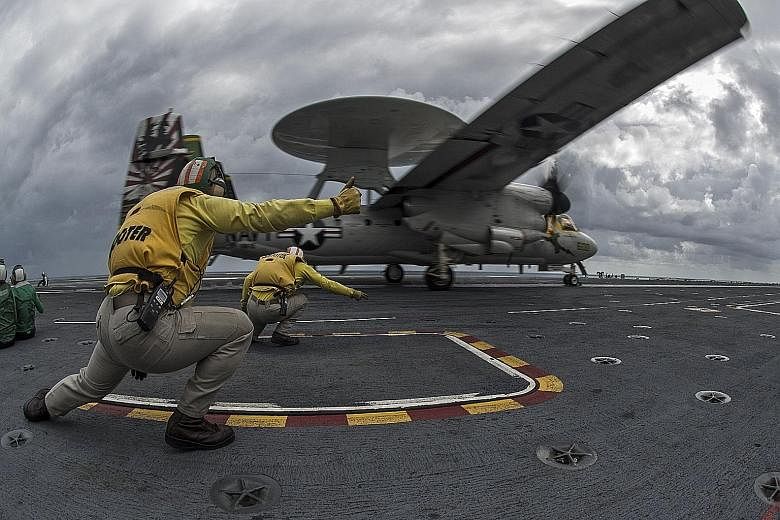CANBERRA • Inflatable boats crammed with camouflaged soldiers power onto a remote beach crawling with Australian, United States and Japanese commandos - watched by officers from China.
The drills, in Australia's remote Top End region in the Northern Territory, are the biggest war games in the military calendar as 30,000 personnel practise beach landings, parachuting and bush survival.
Attended by observers from China, they reflect the delicate dance that is playing out in a region racked by territorial tensions.
Tucked away in the south of the Pacific, Australia nonetheless plays a significant role in regional security. The challenge for the country, as a middle power in Asia, is how to further build strategic ties with Japan, a mutual US ally, without alienating China, its biggest trading partner.
The involvement of Japanese troops in the Talisman Sabre drills at Dundee Beach, 140km south-west of Darwin, runs the risk of annoying Beijing, said Professor Hugh White, who teaches strategic studies at the Australian National University in Canberra.
"The US, Japan and Australia are behaving more and more like they have a trilateral alliance, and the reason for that is, they want to respond to the challenge that China poses to the US-led order in Asia," Prof White said. "The Chinese are well aware of this trend, and they certainly don't like it."
Meanwhile, Japan's government is moving to loosen the pacifist shackles of the country's post-war Constitution. Last week, Japanese Prime Minister Shinzo Abe stared down opposition in Parliament and public protests to push through the Lower House the legislation that will allow Japan to help defend allies.
Mr Abe's efforts to build a bigger role for the military have caused deep unease in a country still coming to terms with what happened 70 years ago during World War II.
New Zealand is also taking part for the first time in the exercises, which feature more than 200 warplanes, three submarines and 21 ships from participating nations.
Yet, 73 years after Japanese bombing raids killed hundreds of Darwin residents, it is the presence of about 40 Japanese troops that is garnering attention, alongside the handful of observers from China.
"I know the Japanese Imperial Army bombed Darwin," said Japan's Lieutenant-Colonel Kuzuo Anamai, when asked about the historical significance of Japan's involvement in Talisman Sabre. He added that he held "positive talks about the new relationship" with local officials.
Mr James Schoff, a researcher at the Carnegie Endowment for International Peace in Tokyo, said the rise of China "definitely drove Japan to enhance defence relations with Australia".
But countries need to be wary of making China the focus of defence ties because "it increases the chance of confrontation", he said.
China is embroiled in a long-running territorial spat with Japan in the East China Sea. It is also conducting large-scale land reclamation in the South China Sea.
The Australian commander of joint operations, Vice-Admiral David Johnston, said the exercise in Darwin "is quite transparent" and they are in regular contact with Chinese officials. "There's nothing in terms of the activities to give them any cause for concern," he said.
BLOOMBERG

